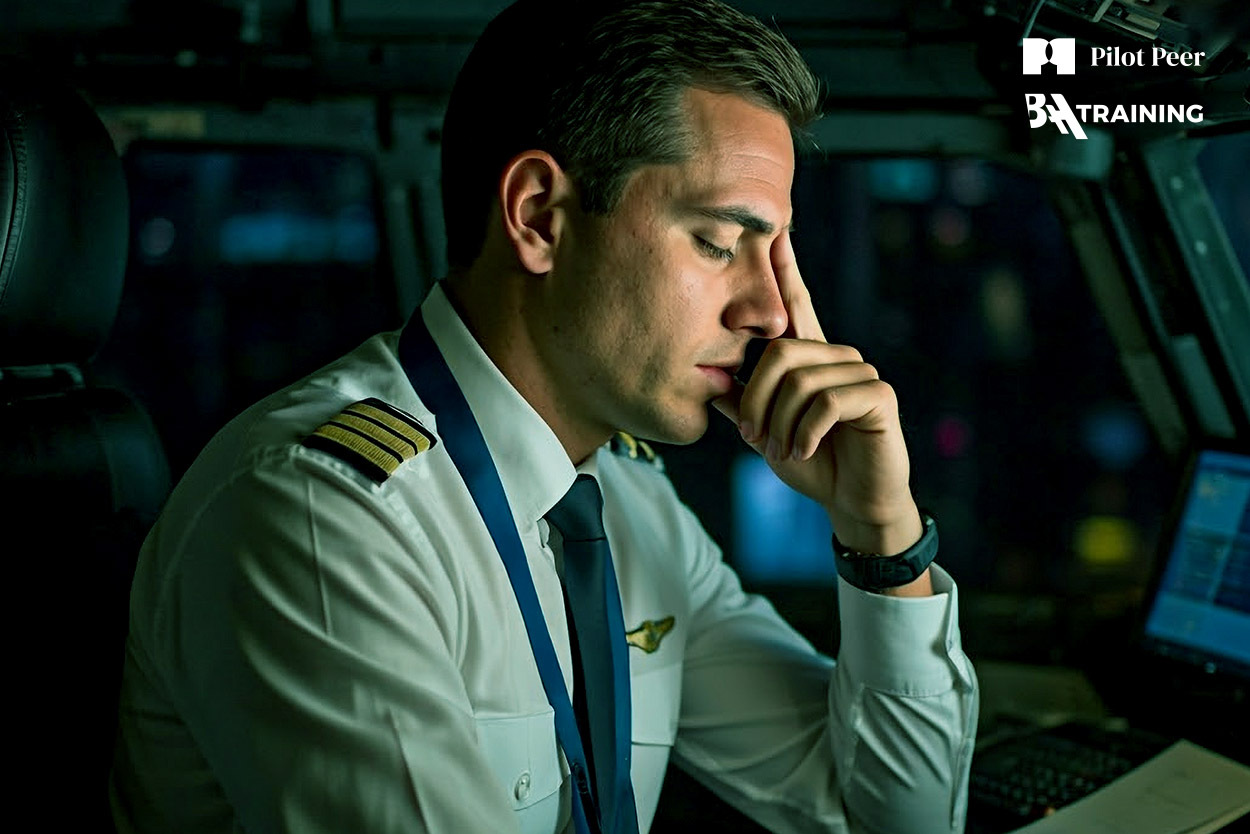Mental health challenges among pilots are not always visible, yet they can still influence overall well-being and flight performance. Psychological illness accounts for over 3% of all pilot incapacitations and is a recognized risk factor in aircraft accidents. Regulations require pilots to report any decline in their medical fitness to an Aero-Medical Examiner—a process that can temporarily ground them from flying duties.
For many pilots, the fear of stigma and career loss leads to silence around mental health issues. However, data from the FAA and UK CAA paint a different picture: fewer than 1% of pilots who disclose mental health concerns lose their license permanently. Despite this reassuring statistic, the stigma remains a powerful barrier, leaving many pilots reluctant to seek help.
How often do pilots face mental health issues?
A 2022 survey involving 1,220 airline pilots, conducted in partnership with the National Union of Airline Pilots, revealed that mental health concerns are far from uncommon. Using the Hospital Anxiety and Depression Scale (HAD), the study found that 25.4% of pilots showed symptoms of anxiety—14.4% with suspected anxiety disorders, and 11.0% with confirmed diagnoses. Depressive symptoms affected 13.1% of participants, with 8.9% suspected and 4.2% confirmed cases. The survey also highlighted a related concern: 40.1% of pilots showed signs of alcohol misuse. These findings underscore the critical need for comprehensive mental health support within the aviation industry.
How can the Pilot Peer Support program help you?
The Pilot Peer Support program offers a confidential and non-judgmental space for pilots to raise concerns about their mental well-being—whether through self-referral or support from colleagues. Designed to be proactive and preventative, the program aims to identify and address issues early, helping pilots maintain optimal performance and well-being.
Research indicates that effective peer support can satisfactorily resolve 85–95% of pilots’ well-being concerns without the need for further intervention. Beyond individual benefits, studies—such as one conducted in South Africa—show that peer support enhances operational and organizational safety, while also fostering personal growth among those providing support.
The program guarantees that no information is shared without the pilot’s consent, except in rare cases where there is an immediate threat to safety. Your well-being is the highest priority, and you are never alone in facing challenges.
If you need a listening ear, understanding, or guidance from peers who truly understand the unique pressures of the cockpit, reach out. Visit https://pilotpeer.com/ to connect with trained peers ready to support you every step of the way.
References:
1. Percheron, M., Prouvost-Keller, B., Allouche, J., Benoit, M., & Pradier, C. (2025). Mental health of airline pilots in France: Insights from an anonymous online survey. Frontiers in Public Health. https://pmc.ncbi.nlm.nih.gov/articles/PMC12142686/
2. British Airline Pilots’ Association. (2019). Peer support programmes – Lessons from the field so far. https://www.balpa.org/2019/05/16/peer-support-programmes-lessons-from-the-field-so-far/
3. Lerman, Y., & Shorer, S. (2023). Are peer support programs effective in the detection and prevention of mental health issues in commercial aviation? The International Journal of Aerospace Psychology, 33(3-4), 123–135. https://doi.org/10.1080/24721840.2023.2278670
4. Bråstad, B., Jonsäll-Harris, R., Melin, M., & Folke, F. (2024). Factors associated with approaching Pilot Peer Support: A cross-sectional study. Occupational Medicine, 74(5), 335–341. https://doi.org/10.1093/occmed/kqae033
5. Coates, S. (2022, February 2; updated July 28, 2023). Pilot Peer Assistance and Support Programmes – Is your airline ready? Aviation Safety Insights. CAA International. https://caainternational.com/pilot-peer-assistance-and-support-programmes/



